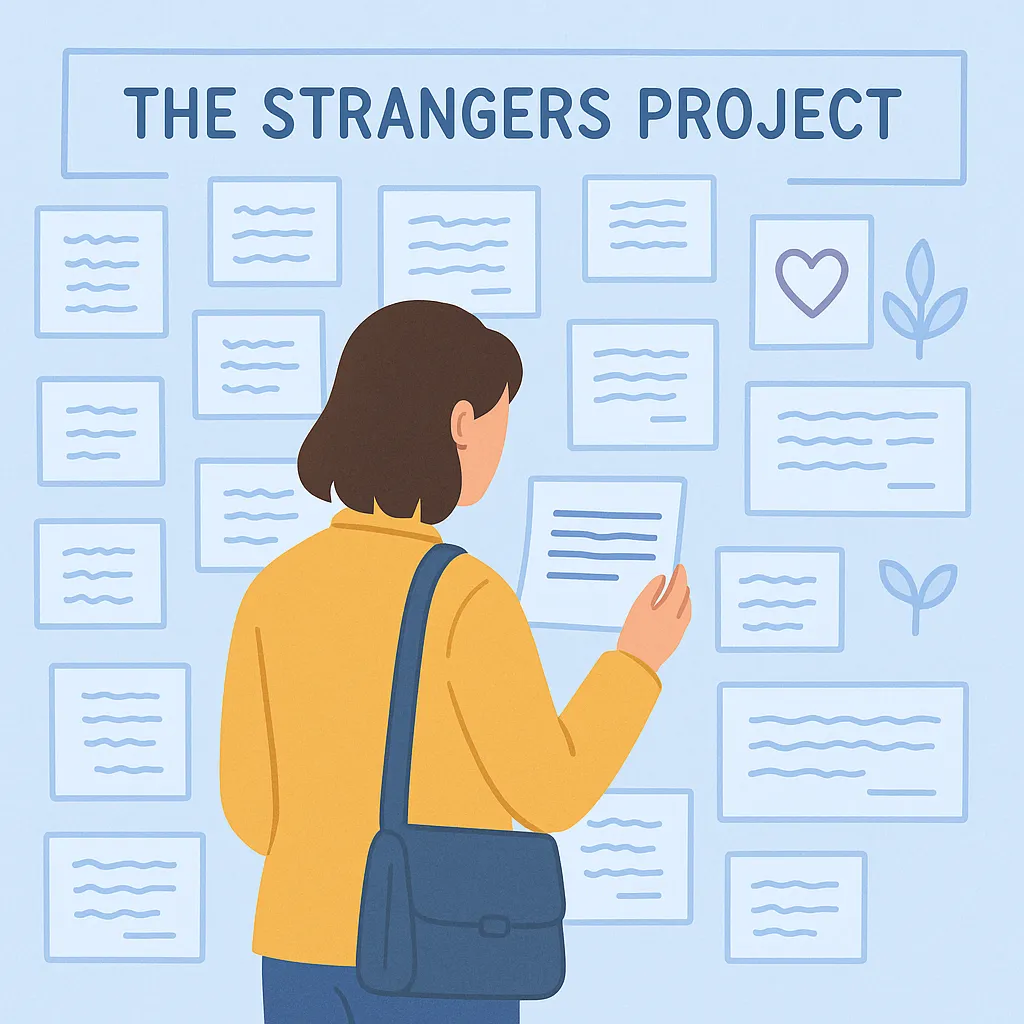
Resilience and Empathy: What a Wall of Anonymous Notes Revealed
Resilience and Empathy: What a Wall of Anonymous Notes Revealed
I wasn’t expecting a leadership lesson at JFK.
But while walking through Terminal 8, I came across The Strangers Project — a wall filled with hundreds of handwritten notes from strangers around the world. There were no names. No context. Just truth on paper.
Some stories were funny. Some poetic. But what stayed with me most were the notes from young adults and young professionals:
“I don’t know how to talk about how sad I feel.”
“Everyone thinks I’m strong. I’m actually exhausted.”
“I wish I felt seen.”
It was a quiet wall of unspoken burdens — heartbreak, self-doubt, loneliness, confusion. I’ve seen this before — not on a wall, but in faces.

In workshops I lead at universities and nonprofits, I hear these silent emotions surface when we talk about:
Discovering your core values
Rebuilding confidence when English isn't your first language
Understanding that we are more than our voice
Sometimes participants reach out weeks or months later, wanting to talk more — not about success metrics or job titles, but about self-doubt, courage, and clarity.
These moments remind me: They’re not just building careers. They’re building identities.
And identity-building is emotional work.
It’s navigating uncertainty, redefining self-worth, and learning how to show up in a world that often values image over authenticity. That kind of growth doesn’t happen through checklists or certifications. It happens when young adults and professionals develop two foundational traits that quietly shape every decision, interaction, and challenge they face:
👉 Resilience — the ability to bounce back and move forward.
👉 Empathy — the capacity to understand and connect with others.
These aren’t just emotional skills. They’re leadership tools. And they can — and must — be taught.
💡 Resilience and Empathy Are Not Personality Traits
We often talk about resilience and empathy as if you either have them or you don’t. But these are teachable skills, especially relevant for those navigating the early stages of adulthood and professional life.
Resilience helps us bounce back from failure, rejection, or uncertainty.
Empathy helps us understand others — even when their world looks nothing like ours.
And here's the beautiful part: they reinforce each other.
🧠 Resilience gives you the inner strength to care about others.
🫶 Empathy gives you the support and connection that makes you stronger.
🧐 Susan David says it best:
“Empathy is expansive. It allows us to understand someone even when their world is nothing like ours. Empathy that lands creates connection. It's what helps a child feel safe, a team feel seen, and a stranger feel like a neighbor.”
This is emotional leadership. This is what young professionals need — not more pressure, but more perspective.
🌱 How We Can Teach Resilience and Empathy
Here's a simple, effective framework I use with the groups I work with:
1. Model Emotional Honesty
Say “I’ve been there” instead of pretending you have it all figured out. Authenticity builds trust.
2. Normalize Feelings
Not every emotion needs to be “solved.” Just being heard often brings relief.
3. Use Stories to Build Empathy
Whether it’s through notes on a wall or a moment in a workshop, stories help us see others — and ourselves — more clearly.
4. Practice Small Acts of Resilience
Encourage:
Journaling
Naming feelings
Asking for support
Celebrating emotional wins (not just external ones)
These small practices build a foundation for confidence, adaptability, and self-awareness.
✨ The Leadership We Need
Young adults and young professionals are facing an overwhelming world of constant feedback, comparison, and ambiguity.
What they need from us isn’t just mentorship or career advice.
They need emotional tools.
They need leaders who can say:
"You are not alone."
"Your emotions are valid."
"You can build the strength to move through this — and help others do the same."
At my end, I’m building safe spaces. One room, one workshop, one follow-up message at a time.
But I know the need is bigger than one voice.
How do we expand this reach?
If you have ideas, or if you want to bring this kind of resilience and empathy-building space to your team, school, or community — I’d love to talk.
